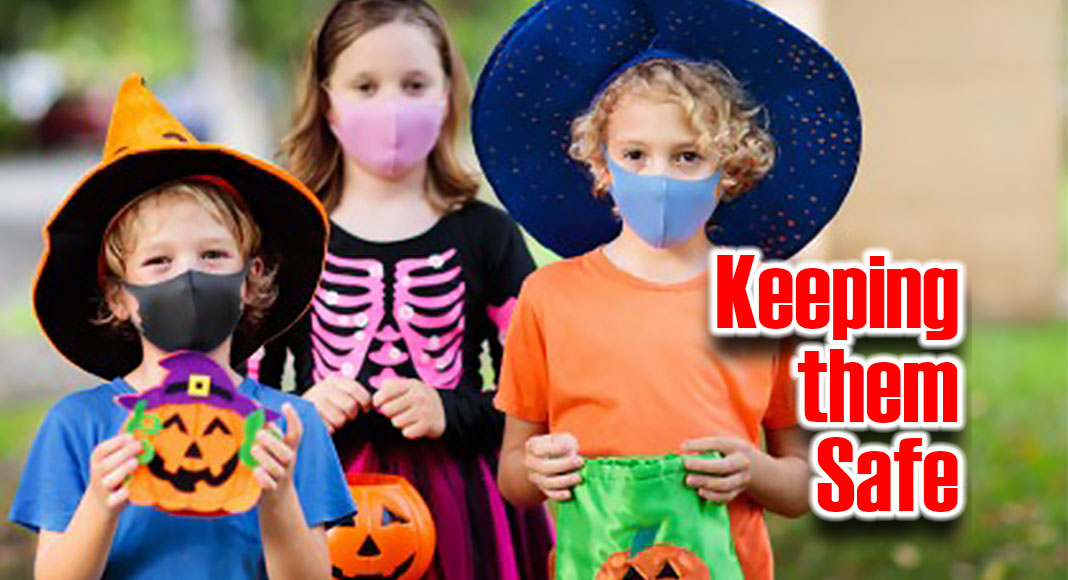
Mega Doctor News
By American College of Allergy, Asthma, and Immunology (ACAAI)
Newswise — ARLINGTON HEIGHTS, Ill. – You’re not alone this year if you just want things to return to “pre-COVID normal”, including fall activities such as Halloween celebrations. Unfortunately, the COVID-19 virus is still present throughout the country, and both kids and adults, especially those who are unvaccinated, are at risk to become infected if there are no precautions in place.
“It’s tough for everyone to be facing another fall and winter with the COVID-19 virus, and particularly the Delta variant, still very much with us,” says allergist Luz Fonacier, MD, president of the American College of Allergy, Asthma, and Immunology. “But because it’s still here, we need to continue to have protective measures in place for holidays like Halloween. And an extra layer of protection is needed for kids who suffer from allergies and asthma.”
Check out these suggestions from the CDC on how to have safe and healthy fall holidays. And keep these four tips from ACAAI in mind as you plan your Halloween celebrations.
- Keep the fun outside – If your kids are into Halloween and want to celebrate, consider hosting or attending outdoor events where masks don’t have to be worn and it’s safer. Games and trick or treating can be modified to include social distancing. Outdoor events may be a little chillier depending on where you live, but they are also a good way to avoid indoor allergens like cat hair, dust, and mold for those who suffer from environmental allergies. If your child has asthma and is attending an outdoor event, remember their inhaler medications and any allergy medications they might need for outdoor allergies.
- Make their costumes scary, not their food – Halloween treats are fun, but if they contain food allergens, they can become scary. While you and your child know which foods cause a reaction, sometimes labels don’t help. If there’s no label on the candy – which can occur with mini-treats – it’s not safe for your child with food allergies. Tell your kids it’s ok to say “no thank you” to a treat if they know it’s not safe for them. If you worry your child will be tempted to snack while trick-or-treating, make a special treat sack to avoid the temptation of eating before they get home. If you have a neighborhood communication vehicle such as a Facebook group, encourage neighbors to include non-food treats as an option.
- COVID-19 vs Halloween facemasks – There are loads of Halloween-themed cloth masks available to help protect your kids from COVID-19. If they are going trick or treating or to a party, they should be wearing a mask that will protect them from COVID. Help your kids pick a costume that works with a protective mask. If their costume includes any kind of mask that isn’t protective, know that a costume mask should not be worn over a cloth mask if the costume mask makes it hard to breathe. Ordinary costume masks are not a substitute for a proper mask designed to minimize transmission of COVID germs.
- Don’t leave teens out of the fun – Teens may act as if Halloween is only for little kids, but they don’t want to miss out on the fun if there are parties or events to attend. And some teens like dressing up in costumes. If your teen has asthma, you may want to remind them to steer clear of smoke machines and bonfires because those can cause an asthma flare. And they still need to carry their rescue inhaler. Any teen with food allergies should be carrying two epinephrine auto-injectors and their cell phone in case an emergency arises. They should make sure any friends they regularly hang with are aware of their allergies or asthma so if they start to have a reaction, the friend can help.
2021 hasn’t been an easy year, and while you want your kids to have fun, you also want them to stay safe. Putting a few precautions in place will help you make sure your kids with allergies and asthma are safe from allergens and flares, and from COVID-19.
If you think your child might have allergies or asthma, make an appointment with an allergist for proper testing. To locate an allergist in your area, visit AllergyAndAsthmaRelief.org.
About ACAAI
The ACAAI is a professional medical organization of more than 6,000 allergists-immunologists and allied health professionals, headquartered in Arlington Heights, Ill. The College fosters a culture of collaboration and congeniality in which its members work together and with others toward the common goals of patient care, education, advocacy, and research. ACAAI allergists are board-certified physicians trained to diagnose allergies and asthma, administer immunotherapy, and provide patients with the best treatment outcomes. For more information and to find relief, visit AllergyandAsthmaRelief.org.








